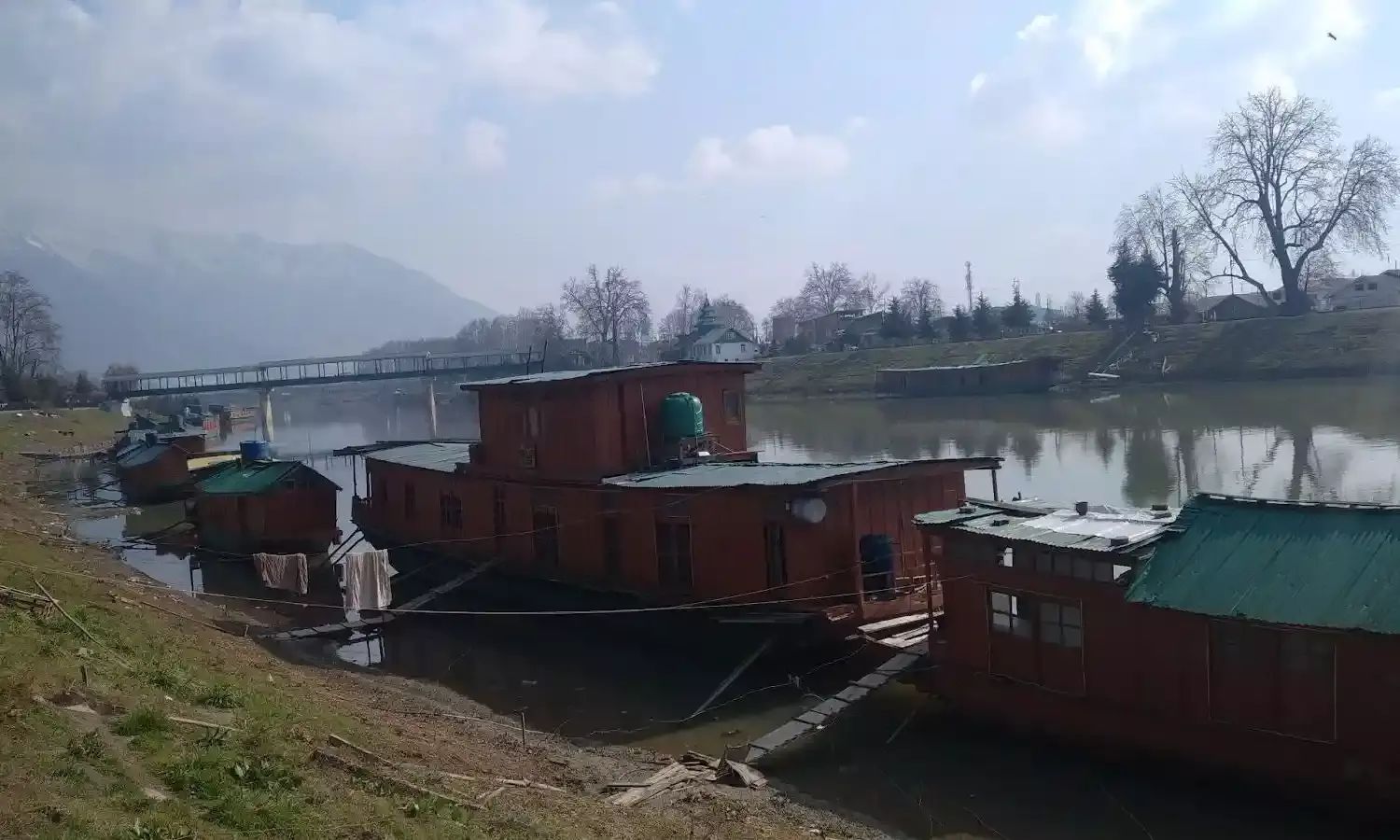River Jehlum Bore 900 Houseboats, Now It Has 61
'If the situation stays the same, the houseboats tradition will vanish soon'
Kashmir’s centuries old traditional house boats in the river Jhelum are vanishing at alarming speed. When militancy erupted in the valley, the house boat owners of Kashmir went to different parts of India and reassured tourists to visit Kashmir. Like most houseboat owners, Ghulam Qadir’s father signed a bond with tourists from south India that if something wrong happened, Qadir would take responsibility.
Collectively, they brought a number of tourists in such tumultuous times to the valley. These tourists would stay in the houseboats, and Kashmir’s tourism sector started to sail. When the Kashmir had no hotels, these houseboats acted as hotels, with tourists from different parts of the world mostly staying in house boats on the river Jhelum.
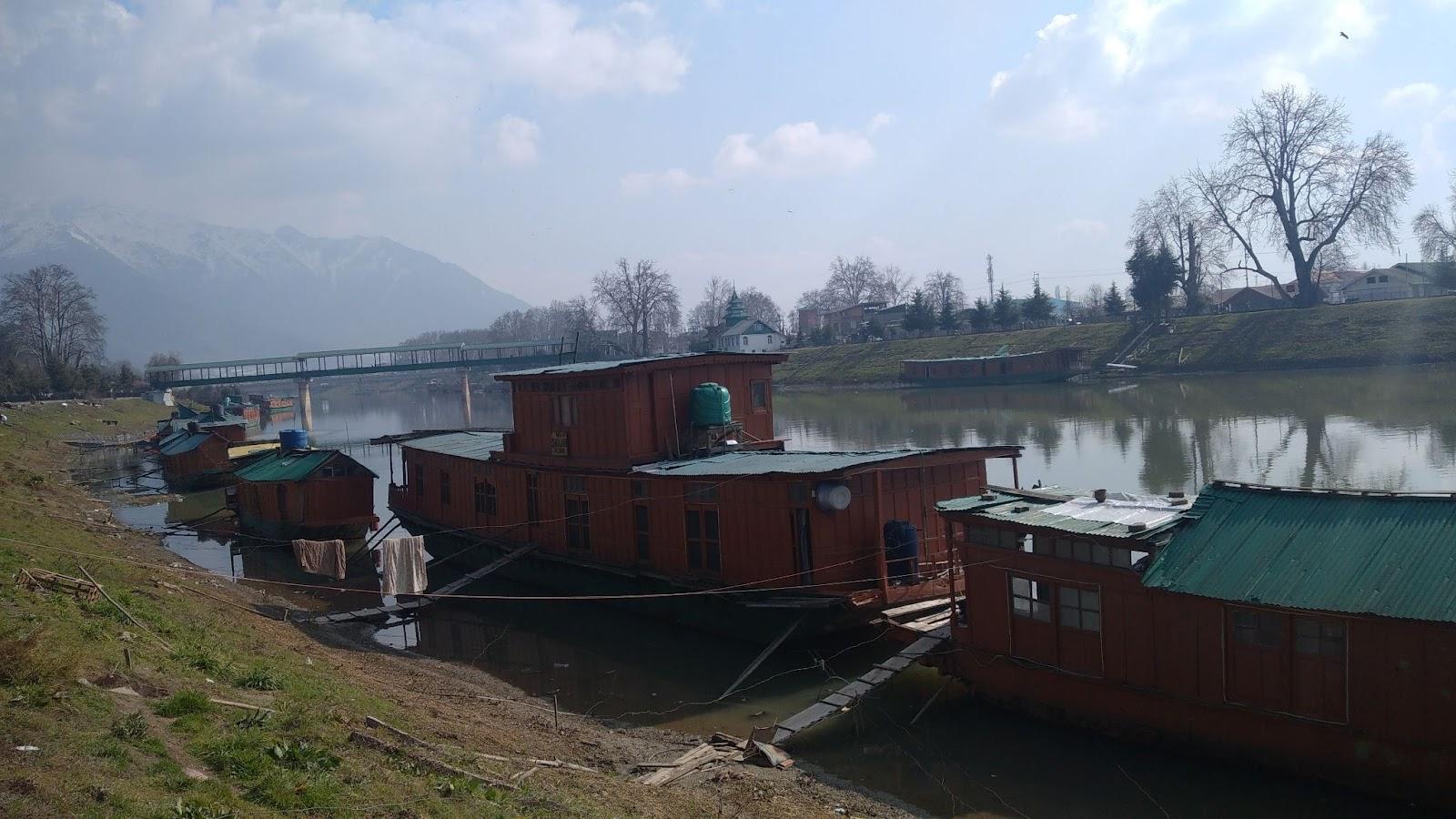
The world famous Kashmiri houseboats are floating homes anchored along the banks of the Jhelum river. They were crafted years ago with the greatest of care.
But over the years, houseboats have been brought to the brink of extinction, especially since the authorities imposed a ban on their repair and reconstruction on water bodies. Officials cited the pollution of water bodies in Kashmir as the reason.
But these houseboats in Kashmir are also home to thousands of the Indigenous Hanji people, whose families and livelihood depend on them.
Historically, the river Jehlum had 800 houseboats, of which only 61 survive today. Most have collapsed due to decay as the owners can't afford to repair them again.
Spokesperson of the River Jhelum Houseboat Association Ghulam Qadir, 50, told The Citizen that once the bottom of the boat starts taking on damage, most people can’t afford the repairs, which cost 2 to 3 lakhs.
He said that since 2015, around 20 houseboats have been sunk because their hull had decayed.
“Neither did the tourism department of Jammu and Kashmir allow us to renew their licence for our boats, nor were the houseboat owners, whose boats had sunk, compensated.”
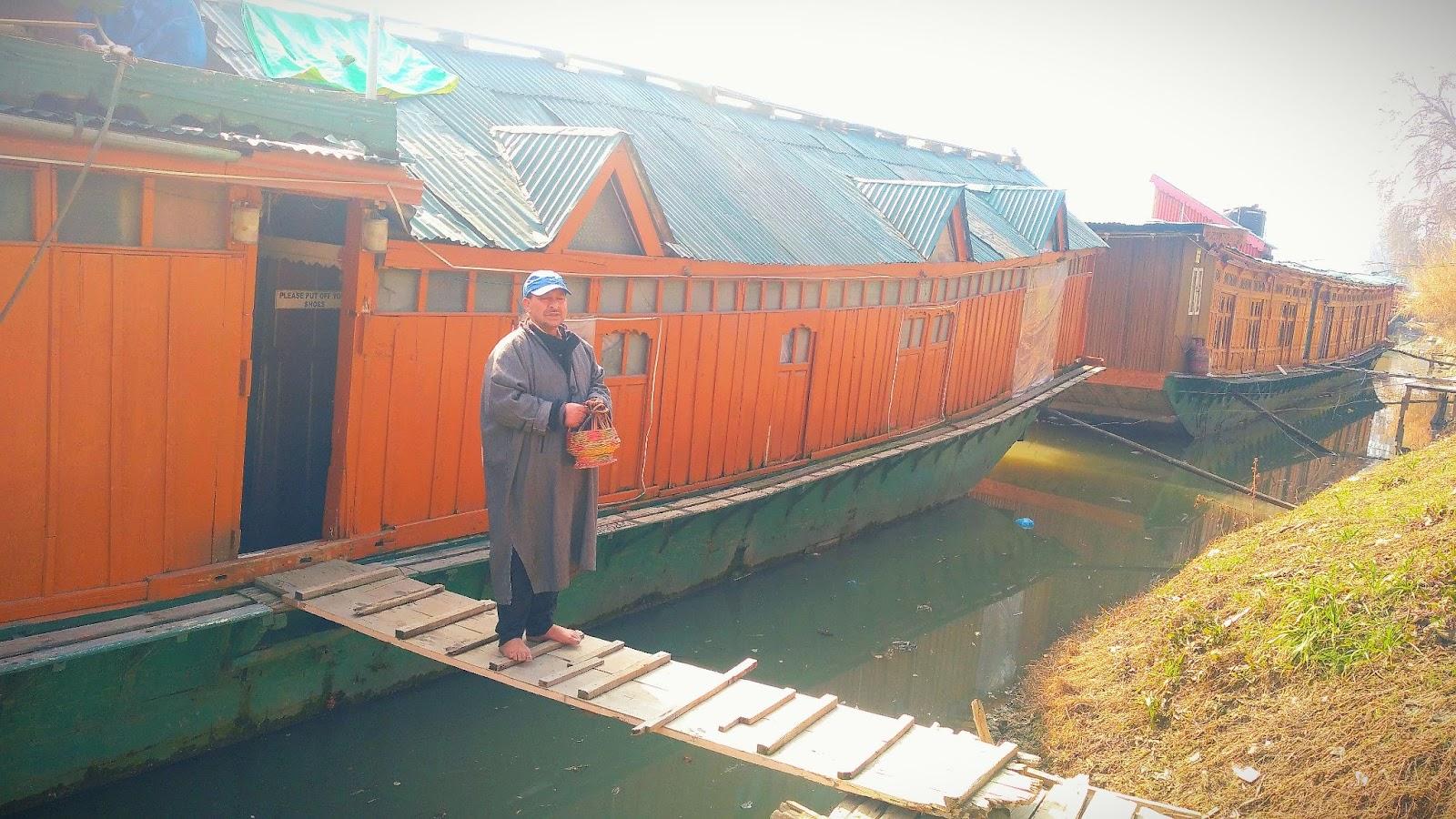
When the deadly disease covid 19 was reported in the valley, it adversely affected the tourism sector of Kashmir, a backbone of the region’s economy.
Houseboat owners of River Jhelum say that over the years many houseboats were gutted in a massive blaze, and those whose boats had sunk, received not a single penny. Instead, they were given only 3,000 rupees per house boat owner.
Farooq Ahmed, 63 years old along with his 4 children, managed to save themselves from drowning, when they came to know that their home, a house boat, was about to sink suddenly one midnight a year ago.
Ahmed told The Citizen that his house boat had sunk far, and he couldn't repair it again due to financial crises.
“On the bank of river Jhelum, I managed to make a tin shed, where I live with my family members in harshest winter. We want to stay in our houseboat, and want to repair it again. But the government ban prevents us, this tradition is going to vanish soon.”
After the Abrogation of Article 370, and even in the covid pandemic, families who earned income by renting out rooms on their houseboats to tourists have suffered.
“We get one room booked in a week - that is the survival of our people who don’t have any land or other business. If the situation stays the same, the houseboats tradition will vanish soon,” said Farooq.
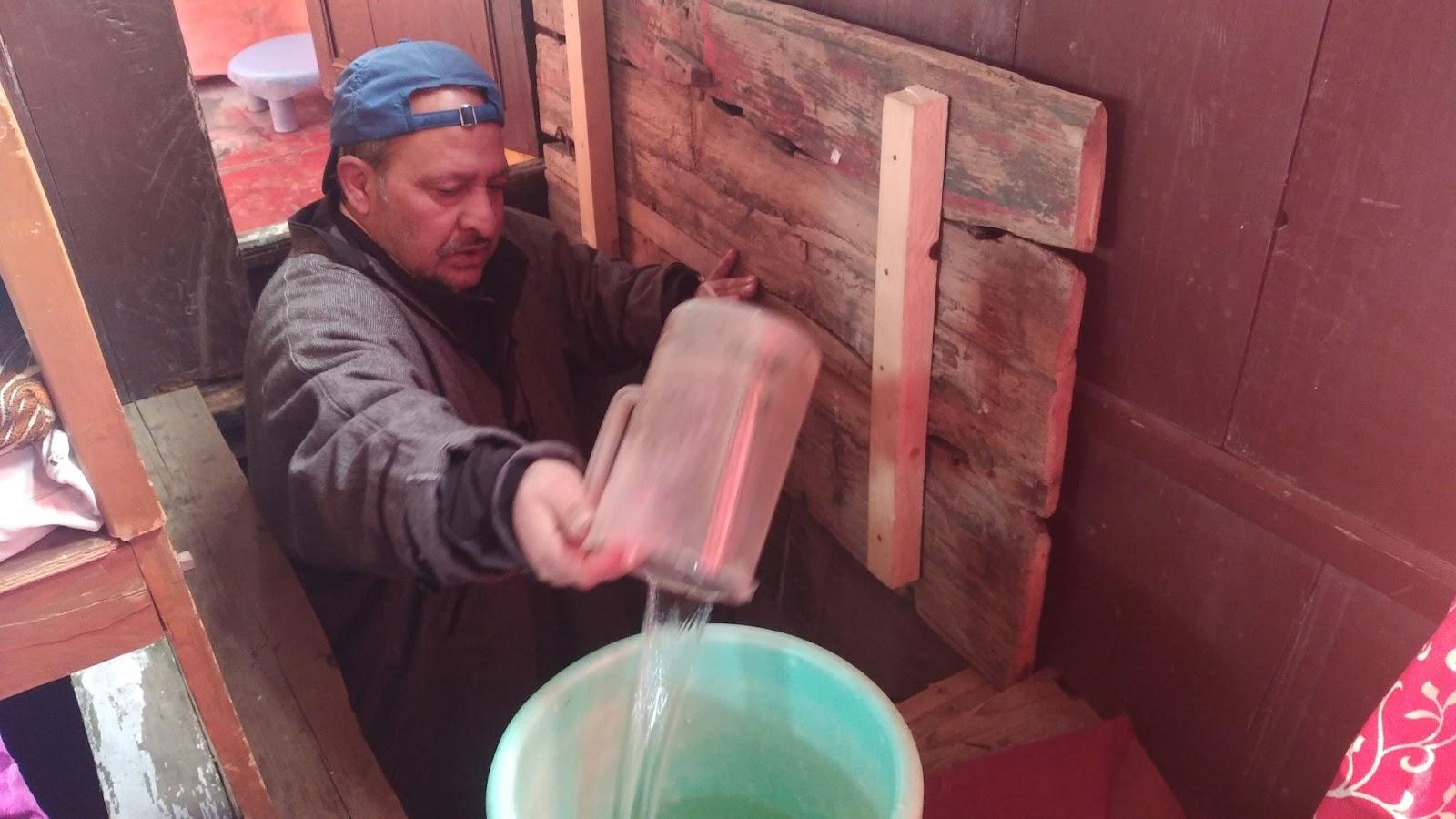
During British era Kashmir, houseboats were used as water transport in river Jhelum. Houseboat owners would carry vegetables, rice bags and other necessary stuff to Sopore town which is 65 kilometres from Srinagar. Hundreds and thousands of Families depended on trade by this water transport.
In 1982, the Jammu and Kashmir government banned the registration of new houseboats. Back then Kashmir was home to approximately 3,500 houseboats. Now that number has dwindled to a few hundred, on Dal lake, Nigeen lake, China bath and Jhelum river.
In 2007, when Mufti Mohammed Sayeed’s government came to power, it imposed a blanket ban on Donga type houseboats, which acted as kitchen to the houseboat owners.
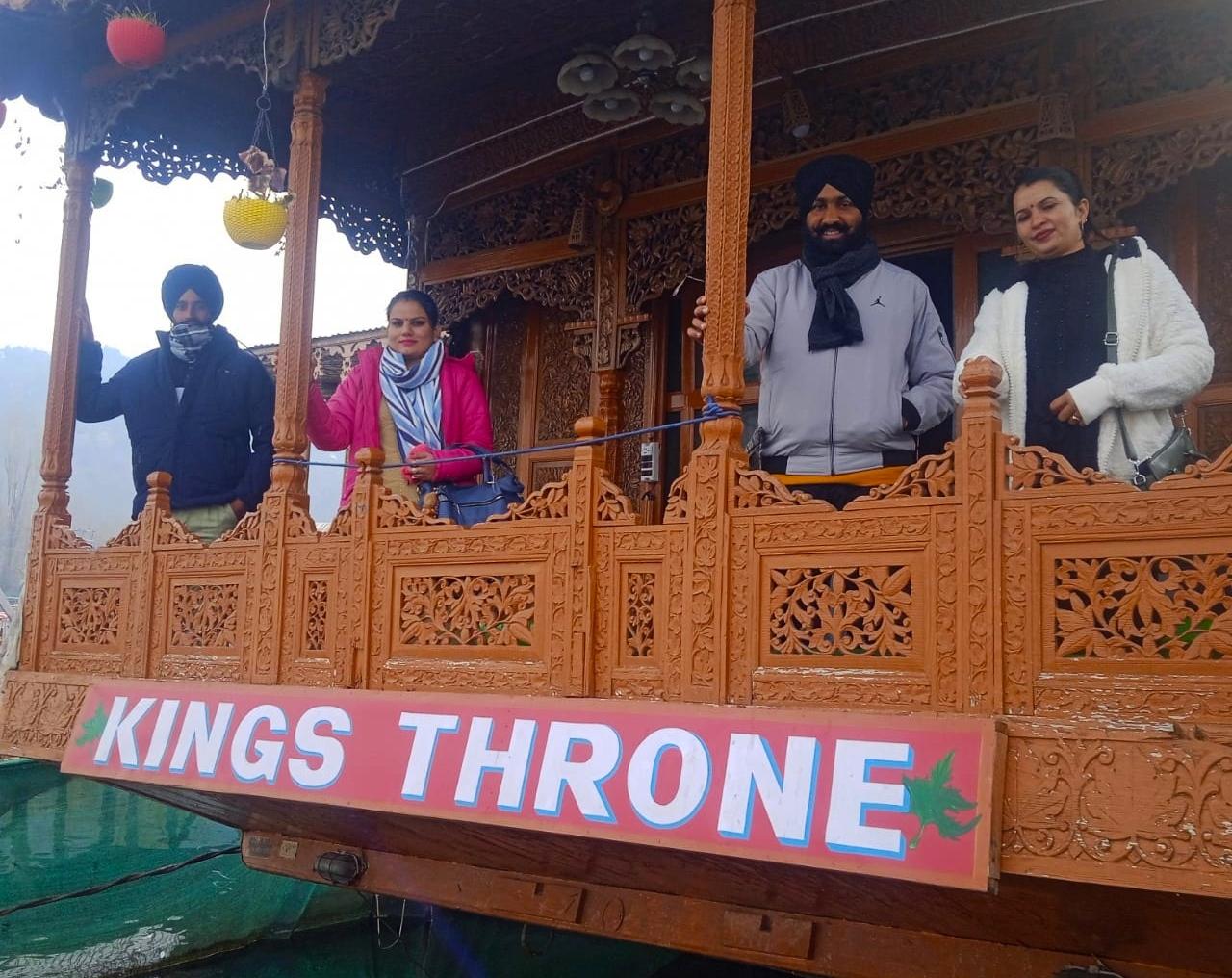
Ghulam Qadir Gassi says that the tourism department had registered their houseboats in 2018 and promised to provide them rehabilitation.
“But till date we have knocked on all the concerned authorities’ office doors, no one cares. In this bone chilling cold, our houseboats are not in a position to stay for winter. They will sink anytime in water as none of us has repaired any boat, yet the tourism authorities have de-registered our boats,” he explains.
“We went to DC Srinagar, Divisional Commissioner Kashmir and even the order for rehabilitation has been granted but still no further process is taking place,” says Qadir. “We houseboat owners along with our families appeal to the administration to rehabilitate us and save our families.”
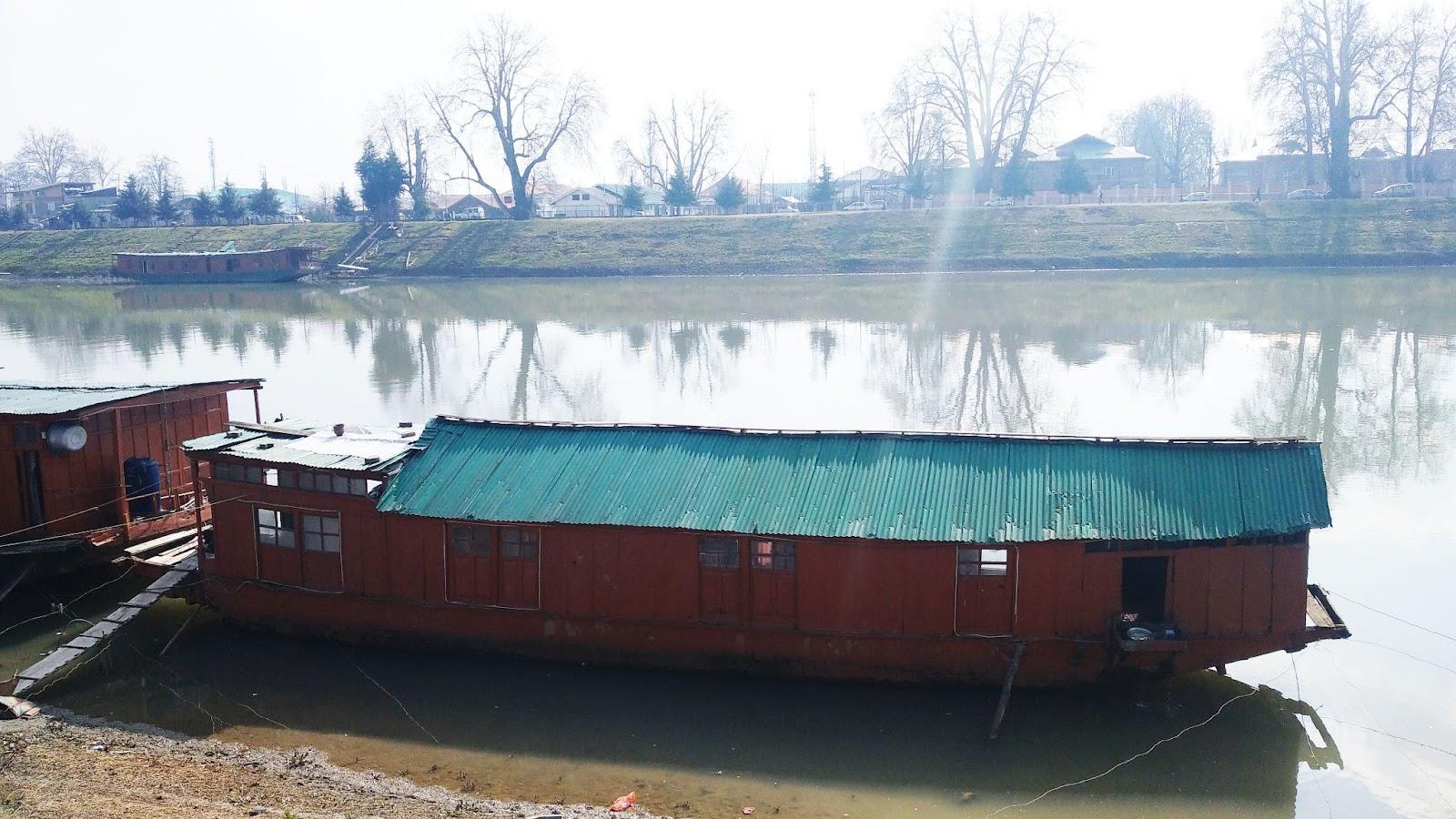
Last year, the government framed a new policy that allows houseboat owners in Jammu and Kashmir to renovate their floating homes, which came as a ray of hope for affected families. Lieutenant-Governor Manoj Sinha had announced the new policy aimed at protecting the houseboats tradition. It allowed the repair of damaged, dilapidated or abandoned houseboats, and the revival of cruise boats and Donga cruises. But the house boat owners of River Jehlum say that nothing has changed on the ground.
A government official said on condition of anonymity that under the new guidelines, houseboat owners will be able to renew their houseboats registration after fulfilling certain general conditions. However, houseboat owners of river Jehlum allege that “from last year till now, our licenses are not being allowed to renew.”
They have apprehensions that under a new smart city project, the government may finish off the centuries old houseboat tradition.



